- 85 East Newton St, Rm 912, Boston, MA 02118
- +1 617.414.4646
- cmtp@bmc.org

CURRENT SITES
CMTP currently has two different tracks (General Track & Community Health Centers Track) and there are multiple sites within each track at which interns are placed. Applicants can apply for one or both tracks. CMTP didactics, core seminars, and mentorship and supervision will be the same for either track. Details in regards to tracks and the placement sites within each are listed below..
“Note that we cannot guarantee placement at any specific site and you could be placed at either of these sites if matched with CMTP. Applicants ranking of sites is taken into account”.
GENERAL TRACK

BMC-Boston Center for Refugee Health and Human Rights (BCRHHR)
Established in 1998, the Boston Center for Refugee Health and Human Rights (BCRHHR) at Boston Medical Center plays a vital role in the efforts to assist refugees and asylum seekers, welcoming more than 300 refugees and survivors of torture each year. The center aims to provide a safe haven and holistic care to men and women from around the world who have suffered persecution in their countries of origin, honoring the importance of community and dignity as a vehicle of healing and recovery. "Our goal is to provide a safe environment in which our patients can heal from trauma, torture and, at times, atrocities, while acclimating to a new culture to which they have been forced to flee. When we first meet, most present with great despair along with symptoms of post-traumatic stress disorder and depression," says Director Lin Piwowarczyk, MD, MPH.With a holistic approach to care, BCRHHR helps patients recover from trauma while adjusting to life in the United States. As many patients have been exposed to extremes of human cruelty, the center offers comprehensive core services including mental health, family medicine and obstetric and gynecological care. In addition, the center provides on-site career development and English classes, as well as linkages to the US immigration and social services systems. The program is a national leader in providing a multidisciplinary model, using staff and pro bono counsel, and forms highly effective partnerships with legal assistance groups to provide medical testimony that is often critical to successful asylum petitions. The center is a place of healing and hope, training professionals and agencies who serve a refugee population and building community through dinners and celebrations.
WEBSITE

BMC-GenderCare Clinic
BMC offers behavioral health services for people considering gender transition designed to assist in evaluating the choices available and to better cope with the psychological difficulties inherent in such a serious decision. Psychological counseling during hormone treatment is usually supportive in nature and is intended to assist the individual in overcoming societal, family or personal issues inherent in this process. For individuals who do not identify as either male or female, psychological services provide a safe and non-judgmental environment to explore one’s identity and gender related issues. First time patients can expect their initial visit to last between 60-90 minutes. During this visit, medical history, gender history, and patient and family goals will be reviewed, followed by a discussion around gender affirming care options offered at the clinic. Individual treatment plans are created based on individual patient goals.Adults who identify as transgender, gender non-conforming, or are gender exploring are provided with supportive services. Additionally, primary care services, endocrinology services, infectious disease services, voice therapy services, and surgical services for transwomen and transmen are provided by this virtual center.
WEBSITE - GenderCare Center

BMC - Transgender Medicine / Center for Sexual Medicine
BMC offers behavioral health services for people considering gender transition designed to assist in evaluating the choices available and to better cope with the psychological difficulties inherent in such a serious decision. Psychological counseling during hormone treatment is usually supportive in nature and is intended to assist the individual in overcoming societal, family or personal issues inherent in this process. For individuals who do not identify as either male or female, psychological services provide a safe and non-judgmental environment to explore one’s identity and gender related issues. First time patients can expect their initial visit to last between 60-90 minutes. During this visit, medical history, gender history, and patient and family goals will be reviewed, followed by a discussion around gender affirming care options offered at the clinic. Individual treatment plans are created based on individual patient goals.Adults who identify as transgender, gender non-conforming, or are gender exploring are provided with supportive services. Additionally, primary care services, endocrinology services, infectious disease services, voice therapy services, and surgical services for transwomen and transmen are provided by this virtual center.
WEBSITE - Center for Transgender Medicine & Surgery
WEBSITE - Center for Sexual Medicine

BMC-Wellness and Recovery After Psychosis Clinic (WRAP)
Psychosis Clinic:At this clinic services are provided for individuals with schizophrenia, schizoaffective disorders and related conditions as well as support for their families. Their goal is to help patients maintain independence, avoid hospitalization, find relief from their symptoms, and maximize their overall quality of life. By providing comprehensive diagnoses, treatments, and follow-up care, patients are helped in returning to their daily life with improved coping skills, conflict resolution skills, and a heightened sense of self-worth. This placement entails a First Episode Program, a Clozapine Clinic, and an Injection Clinic, and interns will be able to provide clinical care to individuals and groups from within these clinics and beyond.
WEBSITE
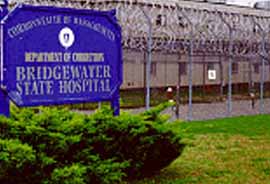
BRIDGEWATER STATE HOSPITAL
The Forensic Internship Placement is located at Bridgewater State Hospital (BSH). BSH is the strict-secured state hospital for criminally insane men and other adult male forensic patients. It is run by the Massachusetts Department of Corrections.The forensic track is designed to provide a broad range of experiences with the correctional population, including evaluation, individual and group psychotherapy, psychological testing, case management, and the opportunity for assistance with pre-trial forensic evaluations. Designated forensic psychologists will provide some or all of
the supervision of interns. This internship is affiliated with Forensic Health Services Inc.
WEBSITE
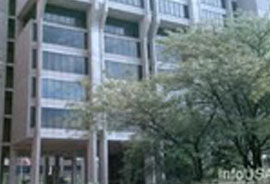 DMH-Dr. Solomon Carter Fuller Mental Health Center (DSCFMHC)
DMH-Dr. Solomon Carter Fuller Mental Health Center (DSCFMHC)The DSCFMHC is a 6o-bed, inpatient, public sector psychiatric hospital owned and operated by the Massachusetts Department of Mental Health (DMH). The hospital is named after Dr. Solomon Carter Fuller (1872-1953), who was born in Monrovia, Liberia and moved to the United States where he attended Livingstone College in Salisbury, North Carolina before continuing to graduate medical school from Boston University School of Medicine in 1897. He then spent much of his career at DMH’s Westborough State Hospital. He became highly regarded for his groundbreaking research on the physical changes in the brain during Alzheimer’s disease.
Today, the DSCFMHC provides person-centered, inpatient psychiatric care to individuals with acute and severe mental illnesses. Clinical services operate within an interdisciplinary treatment team, consisting of psychiatry, nursing staff, medical staff, occupational and rehabilitation staff, social work, and substance use counselors. As a teaching hospital, the DSCFMHC provides learning opportunities for students across disciplines. Program Overview:
As the DSCFMHC receives a high proportion of patients from the legal system, training particularly emphasizes the ability to provide empirically based and legally informed care. Patients at the DSCFMHC represent a wide range of diverse backgrounds, including, but not limited to various medical, social, and psychiatric needs, including concerns of psychosis, substance use, issues of risk (suicide, violence, sexual behaviors, and firesetting), trauma, personality pathology, and severe affective illnesses. Furthermore, the population served by the DSCFMHC is often underserved.
Interns are expected to develop clinical competencies in both psychotherapy and assessment areas. In addition, interns participate within the multidisciplinary treatment teams and provide consultation services related to various issues, such as competence restoration, risk assessment, and individualized care planning. The training program also emphasizes didactic training to further develop foundational and specific knowledge related to clinical work at the DSCFMHC (i.e., Dialectical Behavior Therapy and Acceptance and Commitment Therapy, psychodiagnostic and cognitive assessment, crisis management and de-escalation, ethics, and relevant legal topics).
Training Structure and Expectation:
The following represents the general program expectations and tasks for trainees. Additional opportunities and further details vary according to hospital needs and individual training goals.
Clinical Training:
- Attend daily rounds and treatment team meetings where trainees serve as an integral member of an interdisciplinary team to assess, interview, and develop interventions for admitted patients
- Conduct diagnostic intake assessments, including risk assessment for new admissions
- Maintain an individual psychotherapy caseload of about 4 patients
- Facilitate/co-facilitate about 1 psychotherapy groups per week and develop empirically supported, appropriate group curriculum under supervision
- Conduct comprehensive neuropsychological and psychodiagnostic psychological reports, including test administration, scoring, interpretation, and report writing
- Conduct risk assessments to aid in understanding further violence, suicide, and/or fire-setting risk
- Participate in consultation services, which may be related to issues of competence, risk, care plans, behavioral plans, etc.
Didactics and Seminars:
- Weekly didactic trainings related to a variety of clinical, treatment, and forensic topics
- Attend other interdisciplinary didactics and grand rounds at Tufts Medical Center as available
Elective Opportunities:
- Interns may also participate in a host of additional, elective opportunities that include, among others, participating in research projects, attending commitment hearings in court, observing court ordered forensic evaluations, and collaborating with students from other disciplines
Time Commitment and Schedule:
Unless otherwise agreed upon, trainees are expected to commit to one year of part-time clinical experience (2 days, 16 hours per week). The typical scheduled days/hours are Tuesdays and Fridays 8:30am to 4:30pm. At the beginning of the year, all trainees will participate in a portion of orientation through DMH, which will be scheduled during working days.
Location: The DSCFMHC is in Boston’s South End neighborhood next to Boston Medical Center, Boston University School of Medicine, and Boston University Dental School. It is accessible by bus routes 8 or 47 from the Ruggles T station, route 47 from Broadway T station, or route 10 from Back Bay station. Street metered parking is available, yet limited, and multiple paid parking garages are available. There is a public bicycle rack outside the building as well.
WEBSITE
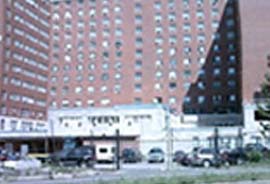
LEMUEL SHATTUCK Hospital
Metro-Boston Inpatient Services, located at the Lemuel Shattuck Hospital on the grounds of picturesque Franklin Park, is comprised of 125 beds managed under the auspices of the Massachusetts Department of Mental Health (DMH). This program provides services to individuals living with severe and persistent mental illnesses and determined to be eligible for DMH services. These services offer comprehensive diagnostic, evaluation, treatment and rehabilitative psychiatric services for these individuals referred through the acute care psychiatric system and from other institutions. Additionally, DMH patients utilize the Ambulatory Care Center's Goldfarb Primary Care and Behavioral Health Clinic with comprehensive medical services, counseling and psychopharmacological management. Additional work will be done with the forensically involved clients including Mandatory Forensic Reviews.The training provided is focused on specific competency areas that enhance skill acquisition and use. The training is focused on helping trainees attain competency in seven specific domains: Clinical Assessment, Forensic Assessment, Intervention/treatment, Rehabilitation, Diversity, Clinical Research and its Practical Application, and Professional Skills and Ethics. The task of helping you attain competence in the seven domains is shared by you and your supervisors. Interns will be assigned to a primary unit on the psychiatric service, Metro Boston Mental Health Units and the psychologist on that unit will be the primary supervisor.
A range of clinical assessments and treatment modalities will be offered inclusive of individual and group treatment; evaluations, and standardized cognitive and personality testing. A broad range of clinical psychology experience will be offered in a context of a multicultural/multiracial population, a team model of treatment, and a psychiatric/ rehabilitation model of care. An emphasis on Forensic Psychology is part of the training experience. Accommodations will be considered if students wish greater emphasis in certain treatment areas or treatment modalities.
WEBSITE

Mass Mental Health Center
Founded in 1912 as the Boston Psychopathic Hospital, the Massachusetts Mental Health Center was one of the nation's first public psychiatric teaching hospitals. An agency of the Department of Mental Health and an academic division of the Harvard Medical School Department of Psychiatry at the Beth Israel Deaconess Medical Center, the MMHC has a proud history of providing enlightened treatment to the seriously mentally ill as well as excellent training and research in a rigorous academic program. The program provides training in the major roles of the contemporary psychologist and the mastery of skills essential to the practice of psychology.The program aims to develop reliable competencies in evaluation and treatment planning, psychotherapy, psychodiagnostic testing, and neuropsychological testing through supervised clinical experience, seminars, and relevant readings. This training requires a substantial time commitment to the core curriculum for psychology interns in the Psychology Department. At the clinical placement the intern works on a multidisciplinary team and is responsible for providing individual therapy, both short-term and long-term; family interviewing and family therapy; group therapy; intake evaluation; crisis intervention; case administration; and consultation with community agencies.
The program includes experience with populations which have typically been underserved, particularly the chronically and severely mentally ill. Each intern has a clinical placement on one of our outpatient teams and another placement in with the Partial Hospital, the Prevention and Recovery in Early Psychosis (PREP) program, or the neuropsychology service.
WEBSITE
COMMUNITY HEALTH CENTERS TRACK
The purpose of this track of the training program is to prepare a new generation of interdisciplinary, trauma-informed, and culturally attuned Behavioral Health professionals. This track is for trainees interested in serving a diverse set of children, adolescents and transitional-age youth (TAY) ages 3 to 25 years, and families within community health centers, where there is an identified need for additional culturally attuned mental health professionals. Interns and post docs would be placed in integrated pediatric primary care/behavioral health service settings in six partnering community health centers. Details in regards to these community health centers are listed further below.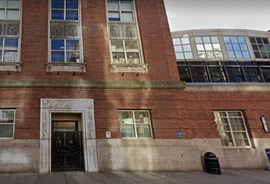
Boston Healthcare for the Homeless
Over 11,000 homeless individuals are cared for by Boston Health Care for the Homeless Program each year. We are committed to ensuring that every one of these individuals has access to comprehensive health care, from preventative dental care to cancer treatment. Our clinicians, case managers, and behavioral health professionals work in more than 35 locations to deliver the highest quality health care to some of our community’s most vulnerable—and most resilient—citizens. BHCHP provides care without regard to race, color, religion, gender, gender identity, sexual orientation, age, disability, veteran status, military service, national origin, immigration status, genetic information or marital status.CMTP trainees will be placed with our multidisciplinary Family Team, and will have the opportunity to conduct individual counseling, provide child and family therapy, and co-lead groups. Trainees may also have additional opportunities to provide services in our office-based addiction treatment (OBAT) clinic.
WEBSITE
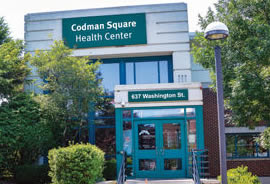
Codman Square Community Health Center-Behavioral Health (CSCHC)
Codman offers behavioral health services that are integrated into primary care to promote overall health and wellbeing. The behavioral health team is comprised of clinicians, family partners, case managers, a domestic violence advocate, a psychiatrist, and others.Members of the behavioral health, primary care, and other specialty teams work together to offer in-the-moment access, assessment and intervention, short-term and traditional therapy services, and referrals to higher levels of care and community service. We provide services to people of all ages and are trained in several therapeutic methods.
Board-certified psychiatrists and nurse practitioners offer diagnostic assessments, medication management, and consultations integrated with Primary Care. We also offer tele-psychiatry services, as well as services for mental health, substance use, chronic health conditions, and life transitions.
Codman Square Community Health Center-Behavioral Health (CSCHC)
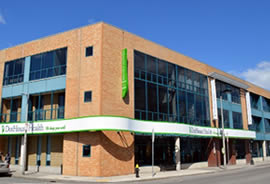
DotHouse Health
DotHouse Health is a Joint Commission-accredited health center recognized for achieving national standards for quality and safety in healthcare delivery and has achieved the highest rank (Level 3) from the National Committee for Quality Assurance.DotHouse Health provides comprehensive primary care services with Adult, Family, Pediatrics and Women’s Health departments that meet the diverse needs of every member of a family. The health center’s on-site Dental Care, Eye Care and Behavioral Health departments ensure that patients have convenient access to a full range of care. The health center is affiliated with Boston Medical Center and DotHouse Health physicians can refer you to any of Boston’s hospitals including Brigham and Women’s Hospital, Children’s Hospital and Massachusetts General Hospital.
The over 300 staff members provide care in multiple languages and work hard every day to treat patients with the very best service. For over 126 years, DotHouse Health has established itself as an exceptional community resource and a reputation as a leader in the delivery of community healthcare.
WEBSITE
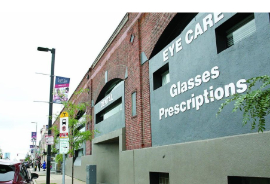
Harvard Street Neighborhood Health Center
MCHC is a Boston-based, private, not-for profit FQHC that was founded in 1972. MCHC offers comprehensive care for the whole family, including primary care, behavioral health services. In 2023, MCHC served 8,688 patients and provided over 35,000 visits across all services. The primary race served is Black/African American making up 75% of total patients, with 4% Hispanic/Latino and 2% White. Patients best served in language other than English are 40% with 37% of the population speaking Haitian Creole. Poverty level of 100% and below is 87% and 93% patients have income under 200% poverty level. Medicaid insurance covers 54% of the patient population and 1% are homeless. It has an OBAT that offers help, support to those in need of recovery from substance use disorder. Care is delivered from a multidisciplinary team and this integrated health care model helps to promote wellness and recovery from substance use disorders. MCHC also offers Trauma Recovery treatment. Providers work to engage the community following incidences of trauma. MCHC is NCQA Patient Centered Medical Home Recognition Recognized with Distinction in Behavioral Health. It has received national quality recognitions from HRSA for Addressing Social Risk Factors to Health and is a HRSA Health Center Quality Leader – Silver.WEBSITE
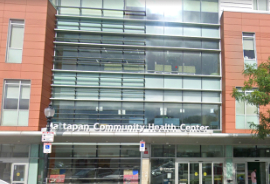
Mattapan Community Health Center
Mattapan Community Health Center is a comprehensive health delivery organization that services individuals from Mattapan and its surrounding areas of Dorchester, Roxbury, and Hyde Park, as well as adjacent Boston suburbs like Brockton, Randolph, and Stoughton. Mattapan Community Health Center offers Primary Care Services, Behavioral Health Services and Social Services. Students who are seeking internships at Mattapan Community Health Center can expect to work with a diverse population providing care in collaboration with a multidisciplinary team.MCHC is a Boston-based, private, not-for profit FQHC that was founded in 1972. It offers comprehensive care for the whole family, including primary care, behavioral health services. In 2023, MCHC served 8,688 patients and provided over 35,000 visits across all services. The primary race served is Black/African American making up 75% of total patients, with 4% Hispanic/Latino and 2% White. Patients best served in language other than English are 40% with 37% of the population speaking Haitian Creole. Poverty level of 100% and below is 87% and 93% patients have income under 200% poverty level. Medicaid insurance covers 54% of the patient population and 1% are homeless. It has an OBAT that offers help, support to those in need of recovery from substance use disorder. Care is delivered from a multidisciplinary team and this integrated health care model helps to promote wellness and recovery from substance use disorders. MCHC also offers Trauma Recovery treatment. Providers work to engage the community following incidences of trauma. It has received national quality recognitions from HRSA for Addressing Social Risk Factors to Health and is a HRSA Health Center Quality Leader – Silver.
WEBSITE
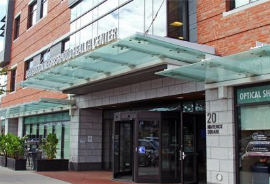
Neighborhood Health East Boston
NeighborHealth East Boston (formerly the East Boston Neighborhood Health Center) is an integrated behavioral health model that works with an underserved primarily Spanish speaking immigrant community. Interns here can expect to work within a fast-paced medical model which strives to establish accessible therapeutic treatment for patients from historically marginalized communities. Students can expect to hone their crisis intervention, diagnostic formulation, emergency psychological first aid, consultation and case management skills at our site.The East Boston Neighborhood Health Center Urgent Care Services (BHUCS) is the innovative new department located in East Boston that is a designed to meet the growing needs off the community. The BHUCS increases access to emergency behavioral health treatment that includes psychiatric triage, medication initiation, crisis evaluation and integrated non-traditional healing arts. Students in this rotation will hone their triage, crisis evaluation and management skills in a fast-paced community care setting.
WEBSITE

South Cove Community Health Center
Founded in 1972 in Boston’s Chinatown, South Cove Community Health Center (SCCHC) is the premier health organization providing primary care to the Asian Communities in the Greater Boston Area. With two locations in Boston, two locations in Quincy, and one in Malden, SCCHC’s mission is to improve the health and well-being of all medically underserved in Massachusetts, with a special focus on non-English speaking Asian-Americans. By providing high quality, community-based health care and health promotion programs that are accessible and linguistically and culturally-competent for these populations, South Cove has become the largest Asian primary care provider in Massachusetts.It also has an Adult Rehab & Detox program, which includes therapies tailored to client's specific needs, and recovery progress. They help adults work through co-occurring conditions, like anxiety, that can accompany addiction. In 2023, South Cove served approximately 37,000 patients, with 96% identified as Chinese descent, 96% speaking a language other than English, 44% of patients were at or below 200% of the Federal Poverty Level, 44% were Medicaid patients, 16% were dually eligible, and 33% were 3rd part insured.
WEBSITE
PAST SITES

Behavioral Health Clinics at BMC
Adult Behavioral HealthInterns will provide psychological services and receive training in cross-cultural diagnosis, evaluation (crisis and stable), individual, group and family therapy. The Adult Behavioral Health Clinic serves a diverse inner-city primarily adult population (individual, group and couples).
Child Behavioral Health
services a diverse inner-city child population. Interns will provide psychological services and receive training in cross-cultural diagnosis, evaluation (crisis and stable), individual, group and family therapy. The intern will work on an interdisciplinary team of mental health professionals and can include coverage and training in the Pediatric Emergency Room.
WEBSITE
 Dr. Solomon Carter Fuler Mental Health Center (DSCFMHC)
Dr. Solomon Carter Fuler Mental Health Center (DSCFMHC)DSCFMHC provides inpatient psychiatric evaluation and treatment to adult patients (60 patients, male and female, age 19 and above) sent by Massachusetts District and Superior Courts, and stepped down from private hospitals and the prison system. Forensic evaluations are conducted by a staff of five forensic psychologists addressing issues such as competence to stand trial, criminal responsibility, sentencing concerns (aid in sentencing), and various types of risk assessments. Patients are also assigned to a multidisciplinary treatment team (psychiatry, psychology, social work, occupational therapy, nursing) that provides clinical evaluation, treatment planning, treatment from various modalities, and aftercare planning. The orientation is one of multidisciplinary treatment, with psychopharmacological, psychodynamic, and cognitive behavioral orientations predominant. Two clinical psychologists, in conjunction with psychology practicum students/interns, provide clinical treatment services in the form of initial psychological and risk assessments, psychological testing (including neuropsychological assessments), group therapy, and individual therapy as needed. All DSCFMHC psychologists are licensed and carry faculty appointments with Tufts School of Medicine.
The patient population is diverse culturally and diagnostically; however individuals with severe and persistent mental illness predominate. A wide range of diagnoses, including psychotic, severe affective, and neuropsychological disorders are represented, as well as co-occurring substance abuse problems and personality disorders. The length of stay is variable, including patients who are discharged after a 20 to 40 day evaluation period, to those who are committed for longer treatment. The criminal offenses of which patients may have been accused or convicted include the entire range of potential criminal offenses, from misdemeanors (trespassing, disorderly conduct) to felonies (arson, murder).
This site will provide students with an opportunity to develop both a knowledge base and clinical skills relevant to the practice of clinical psychology in adult inpatient settings. The student will also gain an understanding of law-mental health issues.
Interns will be provided didactic seminars, supervision (individual and group), opportunities to observe psychology staff in their work including working alongside them, the experience of being part of a multidisciplinary treatment team, and direct patient contact. The student will also be afforded opportunities to observe court hearings and visit other sites that are part of the forensic mental health system. The student will develop competencies in: establishing a role in the multidisciplinary team approach, gathering and integrating psychosocial data to assist with diagnostic assessment and treatment planning, administering and scoring a variety of psychological tests (i.e., cognitive/neuropsychological, personality inventories, projective, malingering), co-leading psychoeducational and psychotherapy groups, and understanding the general principles and methods of forensic practice including risk assessment."
WEBSITE

BMC - Child/Adolescent/Young Adult Psychological Assessment Center
The Psychology Assessment Center is one of the services offered through Child/Adolescent Psychiatry at Boston Medical Center. The Psychology Assessment Center is well integrated into the department and our referrals are from clinician’s who feel that assessments and the information gathered would enhance the patient’s functioning. The population served is generally ages 6-22. Presenting problems include, but are not limited to learning disabilities, intellectual impairments, communication disorders, and a variety of psychiatric presentations requiring projective testing.Assessments that are administered address developmental, neuropsychological, academic, and social/emotional/psychiatric factors that contribute to an individual’s presentation. Familial and sociocultural factors are also integrated into our understanding of the individual. Interns will be able to participate in the testing process from start to finish including intake interviews, assessment choices, administration, report writing and testing feedback. Additionally, interns will participate in TEAM meetings at school (and become familiar with special education law) to ensure that the individual tested receive all the supports that are needed.

BMC - Family Medicine
BMC's Family Medicine practice provides primary care to individuals and families across all ages, genders, and diseases. Family Medicine providers care for all members of a family during all phases of life - infancy, adolescence, adulthood, and senior years. The practice serve approximately 10,000 patients and includes integrated behavioral health, specialized substance use services, and integrative medicine.The trainee in Family Medicine will serve as a member of a multidisciplinary Integrated Behavioral Health (IBH) team and focus on working with children, adolescents, young adults, and families to address the impacts of mental health and substance use. The trainee will learn to address complex interactions between physical and mental health concerns and to conduct focused evaluations to determine the most appropriate level of care. Attention to social determinants of health, use of evidence-based screening/monitoring tools, and implementation of culturally responsive, trauma-informed treatment principles
WEBSITE

BMC - Pediatrics
BMC's Pediatric practice provides comprehensive medical care for children, adolescents, and young adults. Principles and values include 1) family-centered care that focuses on partnering with families to raise healthy, well-adjusted children with good habits for lifelong health, 2) quality medical services emphasizing prevention, and 3) celebrating cultural diversity with multilingual and multicultural staff and easy access to BMC interpreter services to enable families to actively participate in the care of their children.The trainee in Pediatrics will serve as a member of a multidisciplinary Integrated Behavioral Health (IBH) team. The trainee will learn to address complex interactions between physical and mental health concerns and to conduct focused evaluations to determine the most appropriate level of care. Attention to social determinants of health, use of evidence-based screening/monitoring tools, and implementation of culturally responsive, trauma-informed treatment principles are emphasized in supervision and didactic trainings. Opportunities to lead groups and conduct brief psychological testing may also be available.
WEBSITE
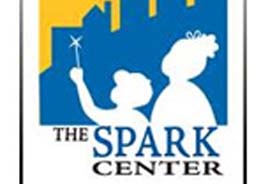
BMC - Spark (Supported Parents & Resillient Kids) Center
(formerly the Children's AIDS Program) is a model program offering comprehensive, integrated, state-of-the-art services for children and families whose lives are affected by medical, emotional and/or behavioral challenges. The program serves Boston's highest-risk children: those living with complicated medical conditions (including HIV/AIDS, asthma, sickle cell anemia, diabetes, failure-to-thrive, and neurodevelopmental challenges; as well as children who are involved with the Department of Social Services due to significant family and social concerns (including child abuse and neglect, domestic violence, adult substance abuse). The SPARK Center is located in the Mattapan area of Boston.This placement site is affiliated with Boston Medical Center and with community health centers that include mental health in the broad spectrum of health care services they provide for residents of the neighborhoods in which they are located. The SPARK Center provides cutting edge training on the intersection of primary health care and mental health services. Under supervision of a licensed psychologist, the Psychology Intern will provide professional mental health services such as diagnostic evaluations, psychological testing, crisis intervention, and individual (child and adult), group, and family therapy.
WEBSITE

Integrated Behavioral Health/Behavioral Medicine at BMC
This placement is primarily located in the General Internal Medicine practice at Boston Medical Center. Interns serve as a member of an interdisciplinary team that includes primary care providers, psychologists, psychiatrists, social workers, nurses, nurse practitioners, clinical pharmacists, medical assistants, and patient navigators. By expanding the reach of behavioral health services to medical settings, Integrated Behavioral Health (IBH) has the potential to reduce health disparities, particularly among individuals who have been historically underserved by the mental health system and/or socially marginalized. Building on the legacy of the late Dr. Robert Sokolove, interns are introduced to the role of a Behavioral Medicine Psychologist in integrated primary care. In this role, interns address the complex interaction between physical and mental health concerns and support patients' self-management of chronic diseases like diabetes, hypertension, cardiovascular disease, and chronic pain. Consistent with a stepped care model, interns learn to conduct focused evaluations to determine the most appropriate level of care. Attention to social determinants of health, use of evidence-based screening/monitoring tools, and implementation of evidence-based treatment principles are emphasized in supervision and didactic trainings. Additional opportunities may include: co-facilitation of group medical visits for chronic pain and/or substance abuse recovery in the Department of Family Medicine; conducting pre-operative psychological evaluations for patients needing either Deep Brain Stimulation for movement disorders or Spinal Cord Stimulation for pain in the Department of Neurology; providing didactics on behavioral health issues to internal medicine residents; and participation in existing IBH research projects.
WEBSITE
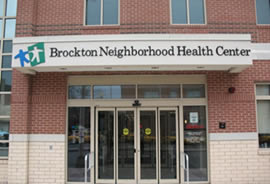
Brockton Neighborhood Health Center
Brockton Neighborhood Health Center (BNHC) is a multicultural organization that collaborates with community agencies and residents to provide high quality comprehensive health care that is responsive to community health needs and is linguistically, culturally and financially accessible. We are committed to health promotion and disease prevention. Brockton Neighborhood Health Center is a non-profit, multicultural, community health center. Incorporated in 1992, BNHC began providing services in 1994 in a mobile medical van operating out of a church parking lot. In its efforts to meet the health care needs of the community, Brockton Neighborhood Health Center constructed a new $17 million community health center, and began seeing patients in this new facility in November 2007. The new facility doubled the health center’s capacity to serve low-income, diverse, medically underserved patients in Brockton and surrounding communities.WEBSITE

Children Services of Roxbury
Children’s Services of Roxbury (CSR) is the largest minority-administered non profit agency in Greater Boston, with deep roots in the neighborhoods of Boston, and an increasing capacity to serve communities statewide. Founded with a specific aim to reach and serve populations that had been traditionally underserved, CSR was created by a dedicated group of activists who saw the need for community-based services for residents of Roxbury and its adjoining neighborhoods.CSR’s mission is to strive to provide high quality services to economically disadvantaged individuals, children, youth, and families thereby promoting and strengthening family life and individual growth. The core values of CSR- dignity, respect, compassion, humility, integrity, excellence, and patience- reflect our approach to serving others and achieving desired outcomes. We recognize that every individual, every family, and every community has enormous strengths, yet too often are defined by their presenting problem. We understand that in order to build trust and indentify those strengths, we must begin with humility and treat the people we serve with dignity and respect, regardless of their circumstances. We must act with compassion and patience, and have an ability to care and empathize without judgment. We must operate with integrity, knowing that the people we serve need us to be consistent and true to our word. We must serve while striving for excellence in everything we do.
CSR currently provides a wide spectrum of high quality services through 26 programs within four areas of service: Early Education and Care; Housing; Youth and Family Support; and Behavioral Health.
Behavioral health is the newest initiative launched by CSR to meet the comprehensive needs of the community we serve. The Behavioral Health Services Department provides mental health counseling and family support services to individuals, children and their families from the Greater Boston area. Services are strength-based, culturally sensitive, and community based.
WEBSITE

Children Services of Roxbury
Children’s Services of Roxbury (CSR) is the largest minority-administered non profit agency in Greater Boston, with deep roots in the neighborhoods of Boston, and an increasing capacity to serve communities statewide. Founded with a specific aim to reach and serve populations that had been traditionally underserved, CSR was created by a dedicated group of activists who saw the need for community-based services for residents of Roxbury and its adjoining neighborhoods.CSR’s mission is to strive to provide high quality services to economically disadvantaged individuals, children, youth, and families thereby promoting and strengthening family life and individual growth. The core values of CSR- dignity, respect, compassion, humility, integrity, excellence, and patience- reflect our approach to serving others and achieving desired outcomes. We recognize that every individual, every family, and every community has enormous strengths, yet too often are defined by their presenting problem. We understand that in order to build trust and indentify those strengths, we must begin with humility and treat the people we serve with dignity and respect, regardless of their circumstances. We must act with compassion and patience, and have an ability to care and empathize without judgment. We must operate with integrity, knowing that the people we serve need us to be consistent and true to our word. We must serve while striving for excellence in everything we do.
CSR currently provides a wide spectrum of high quality services through 26 programs within four areas of service: Early Education and Care; Housing; Youth and Family Support; and Behavioral Health.
Behavioral health is the newest initiative launched by CSR to meet the comprehensive needs of the community we serve. The Behavioral Health Services Department provides mental health counseling and family support services to individuals, children and their families from the Greater Boston area. Services are strength-based, culturally sensitive, and community based.
WEBSITE
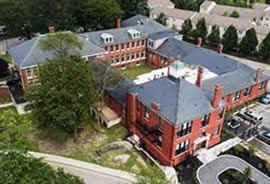
The Dimock Center
The Dimock Center, founded on July 1, 1862 as the New England Hospital for Women and Children, was the first hospital in New England opened and operated by women for women, and only the second in the country. Noted prominently for its role in the history of women in medicine, Dimock strives to continue in the innovative spirit of trailblazers like Dr. Marie Zakrzewska, who established the hospital, and Mary Eliza Mahoney, the country’s first black nurse who studied here in 1879.The Dimock Center is a national model in delivering integrated comprehensive health and human services to Boston's underserved neighborhoods, targeting particularly the African American and Latino residents of Roxbury, Dorchester, Mattapan and Jamaica Plain. Services include preventive and primary care, women's health, HIV care, behavioral health and child and family services.
Recognized nationally as a model for the delivery of comprehensive health and human services in an urban community, The Dimock Center provides over 19,000 people annually with convenient access to high quality, low cost health care and human services that might not otherwise be available to the communities we serve.
Our Health Services programs deliver comprehensive health care for adults and children with specialized clinics, including Women’s Health and OB/GYN, HIV/AIDs, eye care, and dental care. Our Child and Family Services programs offer quality care, education and support to children and families. Our Behavioral Health Services programs provide inpatient, residential and outpatient substance use treatment and recovery services for those struggling with mental illness, development disabilities, substance abuse or violence issues. For many individuals and families, participation in our programs and services literally saves lives.
We encourage you to come visit us on campus and let us show you firsthand how your contributions impact the community
WEBSITE

Greater New Bedford Community Health Center
The community of Greater New Bedford is the long-term beneficiary of our work. We are a fully engaged partner and primary agent for positive change on critical matters of public health and the elimination of health disparities. A rich diversity of patients is at the heart of what we do. Equitable care means we must empathize with each patient, speak their language, and tailor what we do to meet their unique needs. Our approach is dynamic, collaborative, and adaptive. Clear communications, coordinated workflow, financial transparency, and emphasis on outcomes bolster the special relationships between patients and care teams Patients and employees alike can count on our health center to be accepting, safe, confidential, and courteous. Every patient is welcomed, just as every employee is valued. All are treated fairly and with dignity. Health Care Center | New Bedford, MA | Greater New Bedford Community Health Center, Inc (gnbchc.org)WEBSITE - South Boston Community Health Center

Philips Academy Andover
Phillips Academy in Andover, Massachusetts, is the oldest incorporated boarding school in the United States, and stands ready to meet, match, and expand the minds and passions of some of the brightest students in the nation and the world. It is in its 237th year and has a roster of 300 courses, more than 150 electives, and opportunities for pursuing independent study and study abroad projects. Because of our size, Andover offers enormous depth and breadth of activity and opportunity while still feeling like a personal place. Its energetic, one-of-a-kind educational community ultimately helps young people grow intellectually, artistically, athletically and morally. Smart and curious students from 50 states and 34 countries study with teachers and scholars who are also coaches, mentors, house counselors, advisors and inspirations.The Academy, widely known today as “Andover,” was founded at the height of the American Revolutionary War in 1778 by the Honorable Samuel Phillips, Jr. A converted carpenter’s shop served as Andover’s first classroom and contained a small group of boys of various ages, among them, a fifer in his father’s militia by the name of Levi Hutchens, who went on to invent the alarm clock; a future mayor of Boston and president of Harvard University, Josiah Quincy III; and John Lowell, Jr., who would one day found Harvard Law School. Since its auspicious beginning, Andover has stayed true to its original mission, as set forth by Judge Phillips in the school’s founding constitution. In that document, Phillips ordained the school to “educate youth from every quarter,” for, among other noble purposes, the “great end and real business of living.” For more than two centuries, its students and educators have heeded Phillips’s doctrine on the importance of good character in laying the “surest foundation of usefulness to mankind,” because “goodness without knowledge...is weak and feeble; yet knowledge without goodness is dangerous.
The intern placed at this site works with a multidisciplinary medical/mental health team including a physician and nurses; collaborates with students, teachers, house counselors, and families to provide appropriate mental health services; provides crisis intervention and stress management counseling and is available for "walk-ins" (students can come into the wellness center at any time for support). There are opportunities for the intern to co-teach wellness courses. The intern is exposed to a number of psychiatric challenges including eating disorders, self-harm behaviors (i.e., cutting), substance use dx, depression, and anxiety; and developmental challenges adolescents typically face: navigating healthy relationships, identity, and transition to adulthood (separation/individuation) among others.
WEBSITE

The Brookline Center
Brookline Community Mental Health Center pursues two interrelated goals: to provide high-quality, comprehensive, culturally responsive mental health care and community service to adults and children in Brookline, Greater Boston, and across the Commonwealth; and to serve as a design and testing lab for improvements in how the mental health system can best address the needs of its communities. The Brookline Center has over 100 clinicians and staff who strive to provide equitable care for all folks to help them achieve the greatest life satisfaction and well-being possible. For over 60 years, the Brookline Center has provided outpatient mental health treatment and integrated social services for thousands of people each year and, more recently, has expanded into school-based mental health, complex care, early psychosis, and workforce development. The Center's Innovation Institute by working to transform the mental health system through the development, and delivery, and dissemination of innovative programs and services that are accessible to our community and beyond.WEBSITE
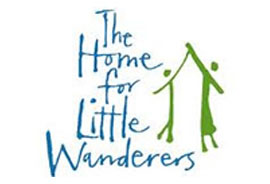
The Home of Little Wanderers
Safe At Home provides multiple community-based services to children, youth, and families. The aim of the program is to maintain children within the community and provide them with the tools they need to thrive. We believe that families are the experts of their own lives, and we ensure that members of our staff possess the skills and knowledge needed to support with and families in achieving their goals. Safe At Home partners closely with families and collaborates with existing providers to ensure top-quality clinical support, case management, and advocacy services. We work to keep families together, in their communities, and ensure access to services for all children and families who need them. Safe At Home is committed to hiring staff that reflect the communities that we serve. Our services are voluntary and family driven. We support families through three distinct programs: Home-Based Therapeutic Services, Therapeutic Mentoring and Community Support.Supervision: Supervision provided by LICSWs, LMFT’s and/or LMHCs.
Internship Responsibilities: Interns at SAH will work collaboratively with their teams to provide clinical support and intervention with families and children. Interns will receive training and practice with a wide variety of families in their home settings. This will provide interns with a clear understanding of home visits.
Internship Assignments: Individual, sibling, family, and couples therapy, home-based family therapy, case management, bio-psychosocial treatment, treatment planning, and case presentation.
Internship Requirements: Car required and must be able to transport clients if needed.
Days/Times: Intern must be able to work 24 hrs per week and have a somewhat flexible schedule in order to do home visits at least one night per week, if needed.
WEBSITE
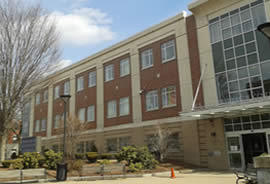
Upham’s Corner Community Health Center (UCHC)
Upham's Corner Health Center is a community driven, not-for-profit center where our goal is to provide comprehensive health and social services of the highest quality that are affordable, physically and culturally accessible, delivered in a dignified manner, and have a positive effect upon the client’s well–being. The Behavioral Health Department strives to reduce the impact of mental illness and substance use by providing culturally sensitive, comprehensive, integrated, trauma-informed treatment. We believe it is necessary for all patients to address mental wellness in their lives in order to live to their fullest potential.Caring for both the mind and body together is the holistic approach you will receive when you come to UCHC for care as we support our patients to live and thrive in their Dorchester community. The Behavioral Health Department is available for persons of all ages offering affordable, comprehensive, and accessible behavioral health care. Additionally, our substance use services aim to help individuals achieve personal change and accept responsibility toward an improved quality of life via substance use groups and services for adult patients 18 years of age and older. We offer Medication Assisted Treatments (MAT) as part of our comprehensive mental health treatment and recovery services. As a team, our multi-cultural and multi-lingual staff consists of a psychologist, clinical social workers, licensed mental health counselors, case managers, and a psychiatrist.
WEBSITE - Upham’s Corner Community Health Center (UCHC)
Access Training Program
